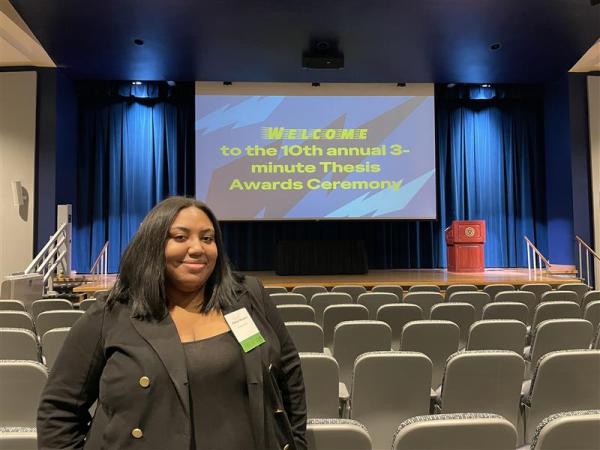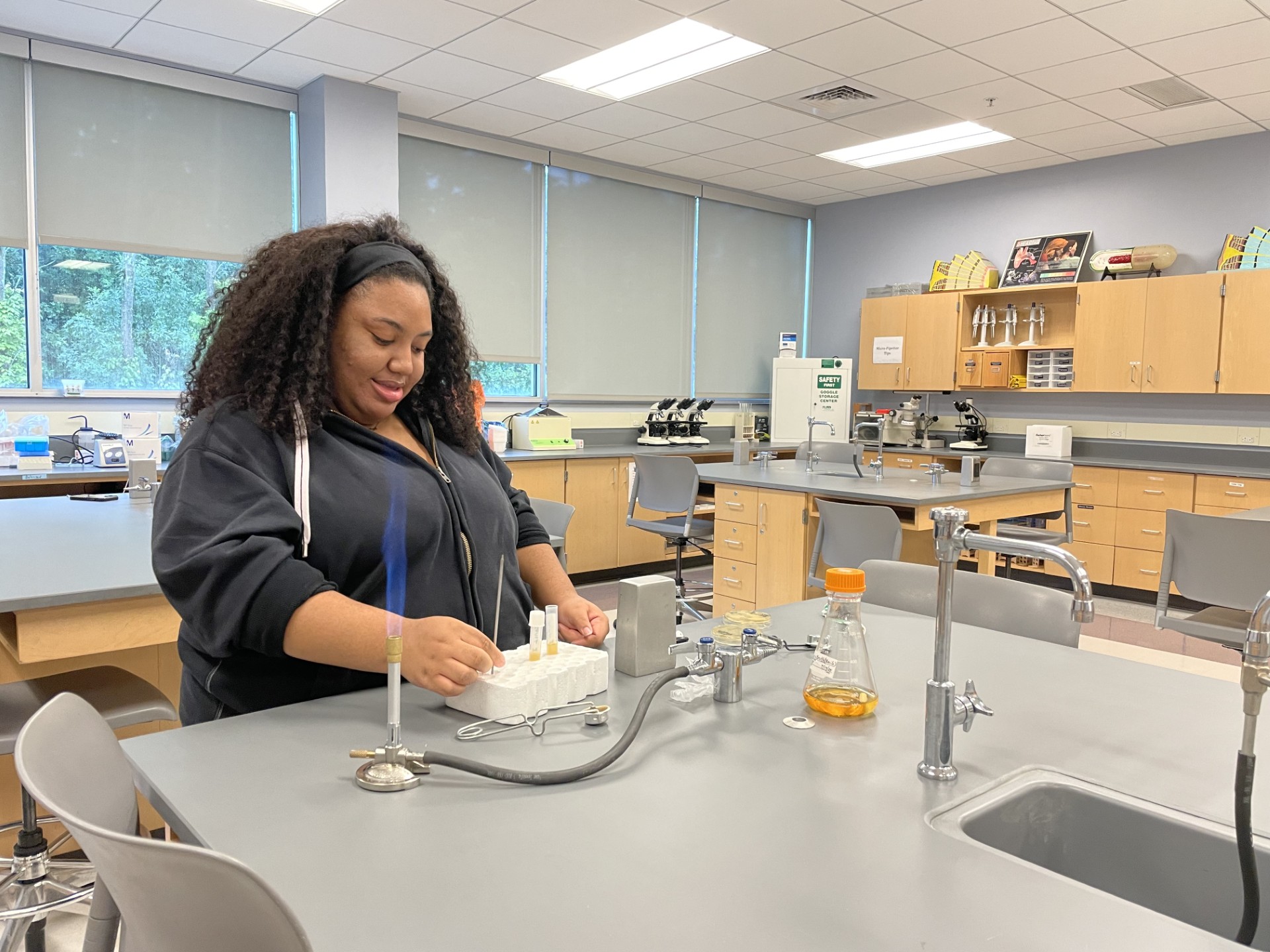Few regional campus students at Kent State University are aware of research opportunities through the Summer Undergraduate Research Experience (SURE) Program. KSU Twinsburg Academic Center biochemistry major Zaniya Houston is an exception.
During summer 2025, this pre-med sophomore gained valuable lab research experience in the eight-week SURE program with the support of a stipend and under the mentorship of two TAC faculty members, Dr. Sanhita Gupta, Professor of Biological Sciences, and Prof. Mahli Mechenbier, Senior Lecturer in the Department of English.
“The faculty at the Twinsburg Academic Center are always enthusiastic about collaborating with students and encouraging independent research, which made it easy to find guidance and support,” Zaniya says.
In conversations with her instructors, the Streetsboro High School graduate showed enthusiasm about preparing for med school and a future career as a physician by conducting hands-on research that connects microbiology to real-world public health applications.
Securing SURE mentors was a natural outcome of those conversations. “I had both Dr. Gupta and Prof. Mechenbier as instructors and would frequently follow up with them about research ideas and academic goals. I built strong relationships with both of them, and when I expressed my interest in conducting research, they were eager to help me get started.”
Zaniya further explains, “Dr. Gupta helped me design and carry out the lab work, while Prof. Mechenbier guided me through scientific writing and communication. Their mentorship and the collaborative environment at Twinsburg Academic Center made navigating the SURE process both exciting and rewarding. The SURE program offered the chance to build lab experience early, explore scientific writing, and prepare for a career in healthcare—more specifically—research.”
Her SURE research focused on isolating coliphages—bacteriophages that infect E. coli—from municipal wastewater in Summit County. She collected wastewater samples, enriched them with E. coli strains, and analyzed the resulting plaques to confirm phage activity.
Since bacterial contamination in food and water systems poses a threat to public health, she explored bacteriophages as eco-friendly alternatives to chemical sanitizers and antibiotics in reducing bacterial contamination.
“I was interested in how naturally occurring viruses can be used as safe, biological tools to control harmful bacteria,” Zaniya says. My goals included detecting, isolating, and characterizing coliphages, using plaque assays and host-specific enrichment techniques.”
Ultimately, Zaniya’s research showed that wastewater contains diverse coliphages, confirming its potential as a reservoir for biocontrol agents. It raised new questions about which specific phages are most effective against pathogenic E. coli strains. Zaniya plans to conduct a follow-up study that builds on these findings and explores phage diversity in greater detail.

Dr. Gupta says, “Working with students like Zaniya allows me to collaborate with them in a laboratory setting, helping them acquire valuable technical skills and a deeper understanding of the microbiological aspects of infectious disease—knowledge that will undoubtedly prepare them for future careers in medicine, nursing, or veterinary medicine. As these students transition into clinical settings, the hands-on experience they gain in the laboratory will enable them to practice more holistically.”
Prof. Mechenbier teaches Technical Writing and Business & Professional Writing. She says, “Zaniya was a stand-out student in English 11011 two years ago, so teaming with her and Dr. Gupta for a SURE project was an easy ‘yes.’”
As a SURE mentor, she focused on the technical writing components of Zaniya’s field journal and scientific report, including the ethics of technical writing in effective data presentation.
Prof. Mechenbier explains, “Accuracy and transparency in communication are central to a technical writer; the writer cannot misrepresent data, and the researcher should use photographs and visual representations honestly. I encouraged Zaniya to consider the impact of words—and word choices—in writing her report.
“Too often, students are so engaged in the field and laboratory experience that they neglect the importance of how technical writing is to scientific writing and publication. Zaniya understands that all research should have a ‘deliverable’ so that research findings can be shared with the public; naturally, technical writing was a component of her research with Dr. Gupta.”
Zaniya says her summer research experience bolstered her confidence in designing and executing scientific experiments independently. “I learned that research and medicine intersect more than I realized—both require observation, patience, and problem-solving. This experience strengthened my commitment to pursuing a medical career grounded in science and discovery.”
Prof. Mechenbier adds, “Zaniya is naturally curious and welcomes opportunities to gain hands-on experience. She is not afraid of a challenge. It is so important for faculty to mentor undergraduate students because these research experiences open up possibilities for cross-disciplinary collaboration.”

